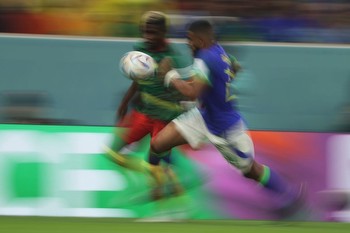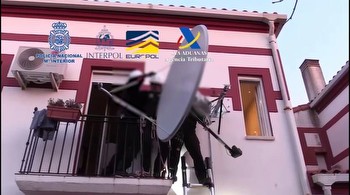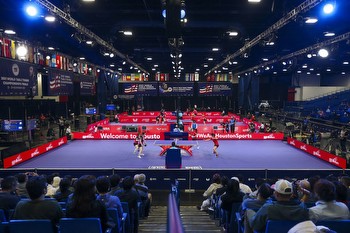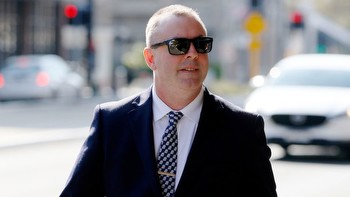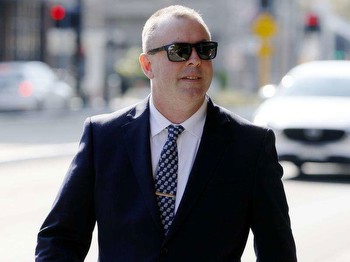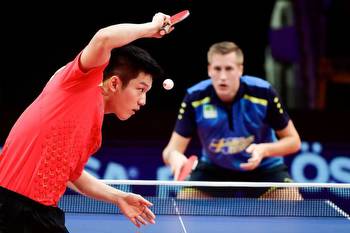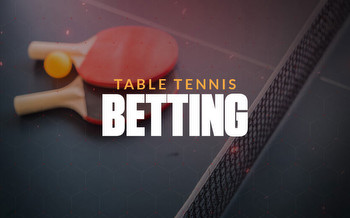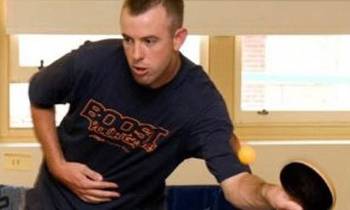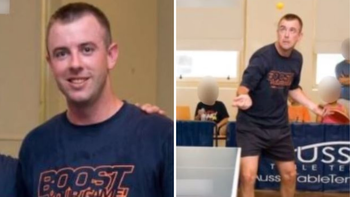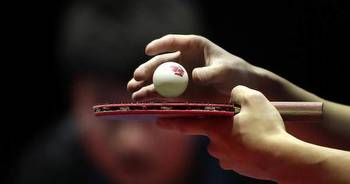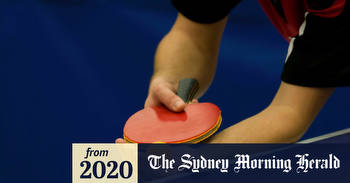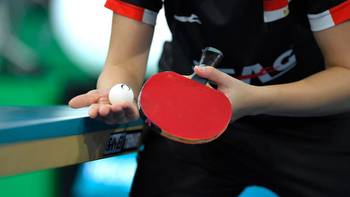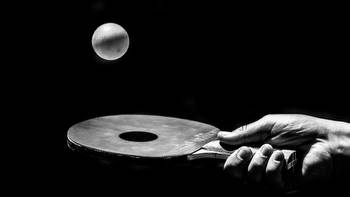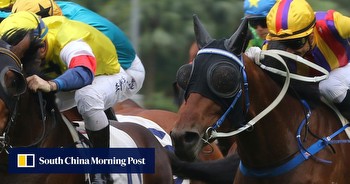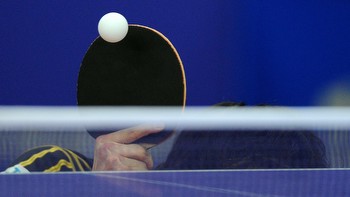Former table tennis pro Adam Green faces sentence hearing for betting on fixed European matches during COVID-19
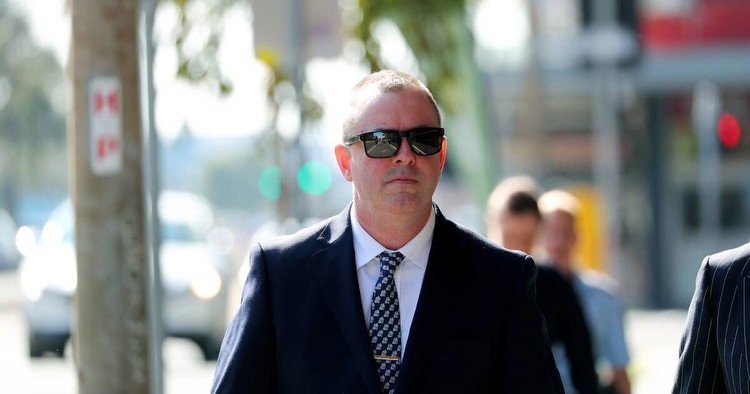
AIMLESS after his professional table tennis career came to an end and unemployed due to the COVID-19 pandemic, Adam Michael Green in 2020 reached out to an old European table tennis contact to ask for some tips.
Green, of Broadmeadow, was hoping to supplement his unemployment benefits with gambling during the pandemic, but the "innocent question" about tips quickly evolved into an agreement where Green would use inside information and multiple sports betting accounts to place about 1100 bets on fixed matches in Ukraine, raking in almost half a million dollars for himself and associates overseas.
Green won big during COVID, but on Tuesday - more than three years later - it almost cost him his freedom.
Former table tennis pro Adam Green arrives at Newcastle courthouse for sentencing for placing corrupt bets. Picture by Peter Lorimer
The 43-year-old was expected to face a complex trial earlier this year focusing on hundreds of corrupt bets that detectives had alleged were the work of the head of a transnational gambling syndicate.
But instead, he pleaded guilty in May to using corrupt information to bet on an event and knowingly deal with the proceeds of crime after prosecutors agreed to drop more than 60 other charges.
Green was a former table tennis junior standout, who trained in Europe and was in contention for the 2012 Australian Olympic team.
And he knew that the European table tennis betting market could be corrupted because he had "suffered" from it during his career, Newcastle District Court heard on Tuesday.
During the height of the COVID-19 pandemic, when sporting competitions were being disrupted around the world, Eastern European table tennis was one of the only sports that continued without interruption.
As a result, wagering operators began promoting markets on Ukrainian table tennis and, during that brief period when traditional sporting competitions were being abandoned, it quickly became the go-to sport for Australian punters.
Around the same time, Green began communicating via Facebook messenger with a Ukrainian table tennis player based in Eastern Europe.
What started with Green requesting tips on matches in the Ukraine evolved into the European player proposing an arrangement whereby Green would establish a number of betting accounts in Australia and the European player would send him money to bet on fixed table tennis matches.
Adam Green in 2009.
In the messages, the European player told Green: "My friend contact me, he has a lot of results".
The European player offered Green 10 per cent of the profits for placing the bets, but Green was able to negotiate a payment of 20 per cent, court documents said.
Green already had a number of sports betting accounts and started receiving money from overseas and information about fixed matches.
He began placing bets using the inside information about the corrupt games and, to maximise profits, used a number of "bowler" or "mule" bookmaking accounts in the names of at least 11 family members or associates.
He would also place bets using these "bowler" accounts for his personal gain, outside of the agreement with the European player, court documents said.
Between May, 2020 and his arrest in December, 2020, Green placed about 1100 bets on table tennis matches, many of which were made using inside information about fixed matches.
In total, detectives estimate he generated profits of about $473,000 from these bets.
But as part of the negotiations with prosecutors, Green pleaded guilty to using corrupt information to place 63 bets on 39 table tennis matches, which returned a total of about $50,000.
As well as the accounts of 11 associates in Australia, Green passed on information about three fixed matches to a friend based in the UK.
Adam Green (left) arrives at Newcastle courthouse on Tuesday alongside his solicitor Drew Hamilton. Picture by Peter Lorimer
And between June and December, 2020, Green sent some of the profits to associates in the Ukraine, making 28 separate international fund transfers totalling $190,000.
Each transaction was below the $10,000 AUSTRAC reporting threshold in an attempt to avoid suspicion.
But the authorities were already onto Green after a referral from a gambling company, who had noticed suspicious activity relating to large bets on Ukrainian table tennis in May, 2020.
Detectives established Strike Force Brombal to investigate the transnational gambling syndicate and in December, 2020, they raided Green's house at Broadmeadow, as well as eight other properties at Wickham, Hamilton, Stockton, Cameron Park, Hawks Nest and Shortland.
At Green's house, detectives found extensive notes relating to betting accounts for each of his associates, odds on table tennis matches, names of players and bets made on matches.
Adam Green during his arrest at Broadmeadow in December, 2020.
Defence barrister Ben Bickford on Tuesday said Green contacted the European player hoping for a few tips because he'd lost his job driving for Uber during the pandemic and that "innocent question" evolved into betting on fixed matches.
"He wasn't coordinating these matches, he wasn't a player himself," Mr Bickford said of Green. "He was a person who, it seems sadly like a lot of people who are fortunate to play sport professionally, at least in this country, had come to an end to their career and found themselves a bit lost. "He spent several years without much direction and had little to fall back on once his career finished in about 2013, only to have his only means of income taken away from him during the pandemic. "It's the context of those circumstances where he took advantage of this opportunity and one thing led to another and it's accepted he became greedy."
Mr Bickford said Green was, at the time of the offending, suffering from an undiagnosed gambling disorder and adjustment disorder due to the end of his sporting career and could be sentenced to an ICO and avoid full-time jail because he had a low-risk of re-offending and no prior criminal history.
He said Green had since undergone a "complete turnaround" in his attitude towards gambling and community safety would not be promoted by sending him to jail, where he would be open to negative influences and would not be treated for his gambling disorder.
Ultimately, despite prosecutors pushing for imprisonment, Judge Peter McGrath agreed with Mr Bickford and ordered that Green serve a three-year intensive corrections order.
Adam Green being taken into Newcastle police station after his arrest in December, 2020.

